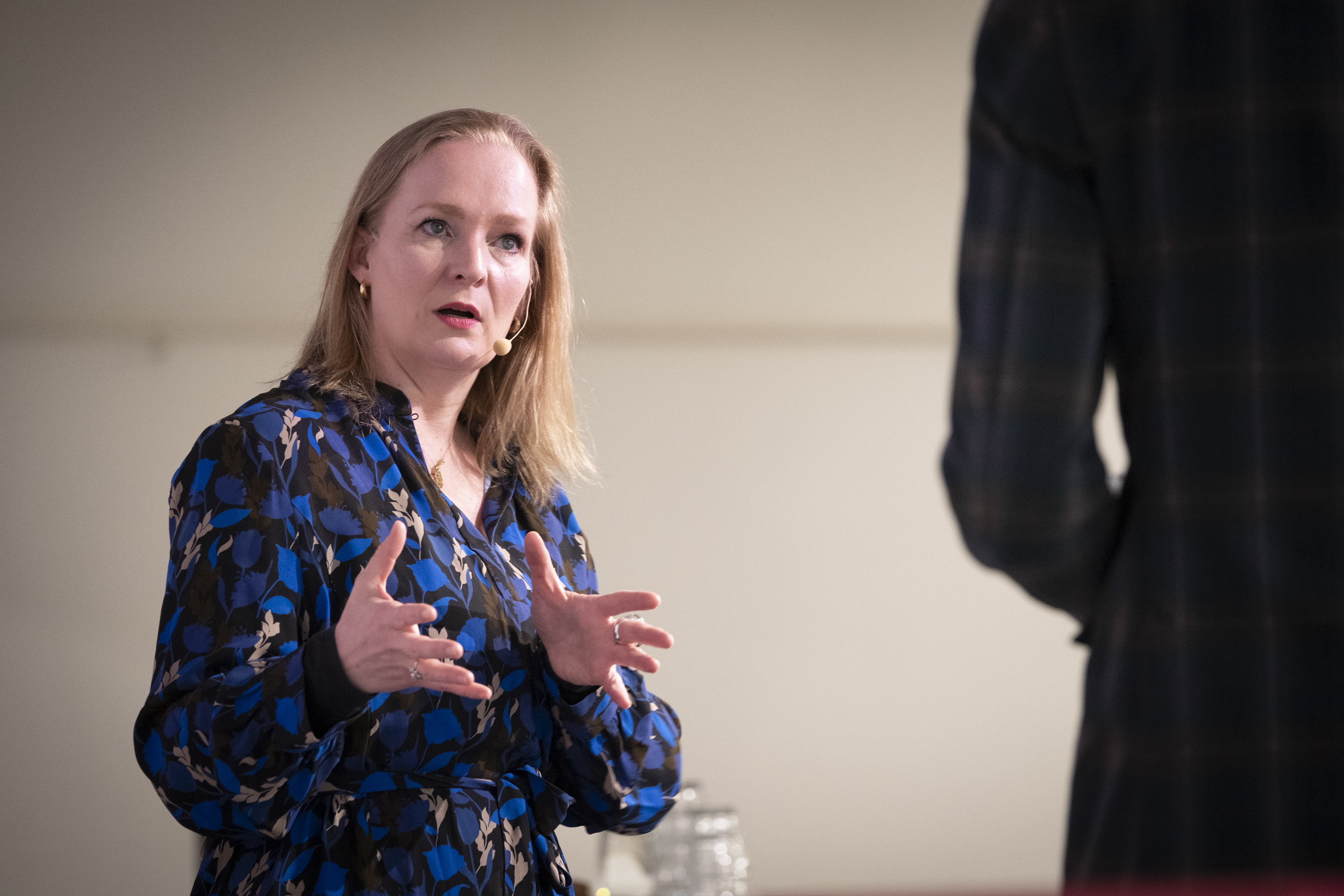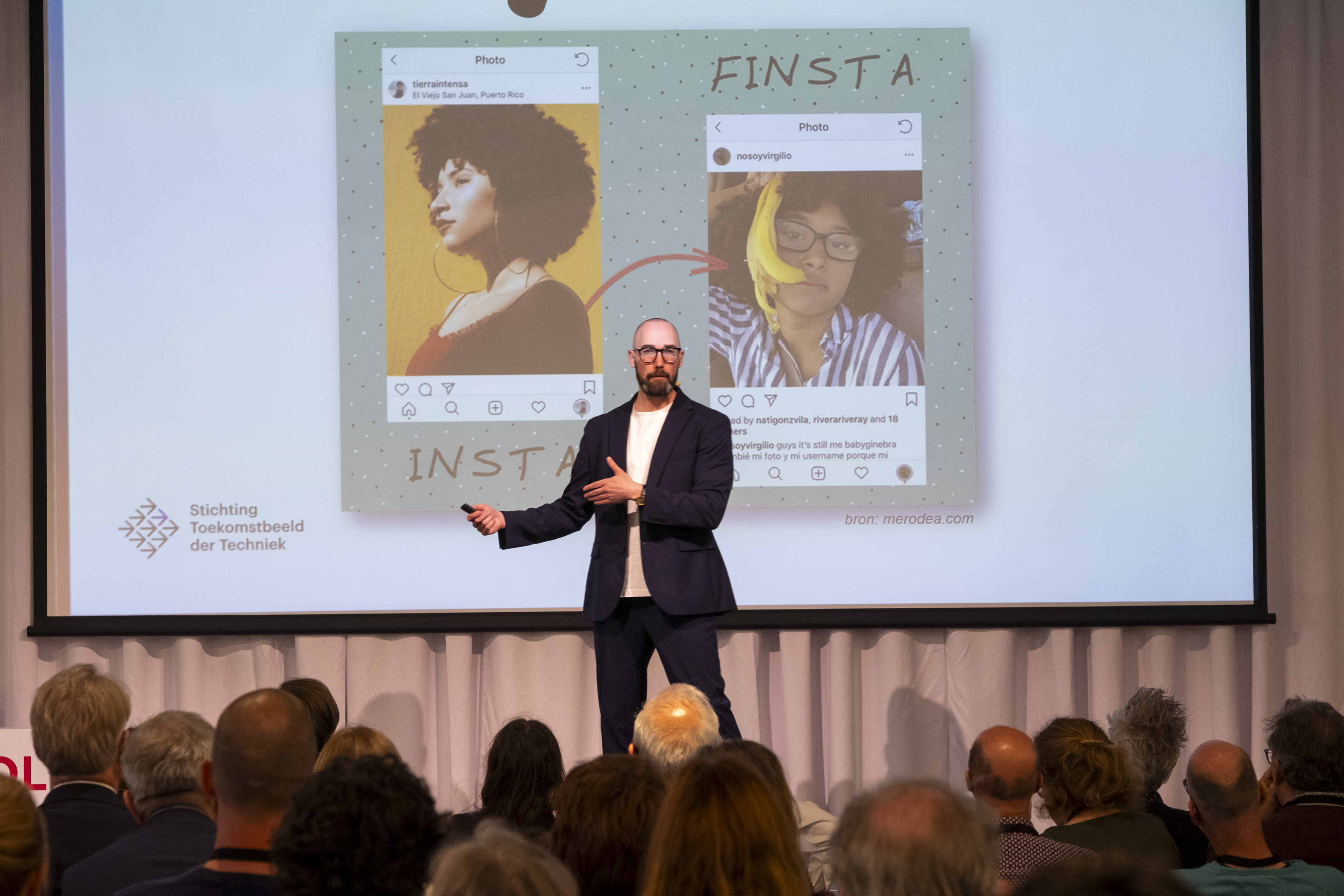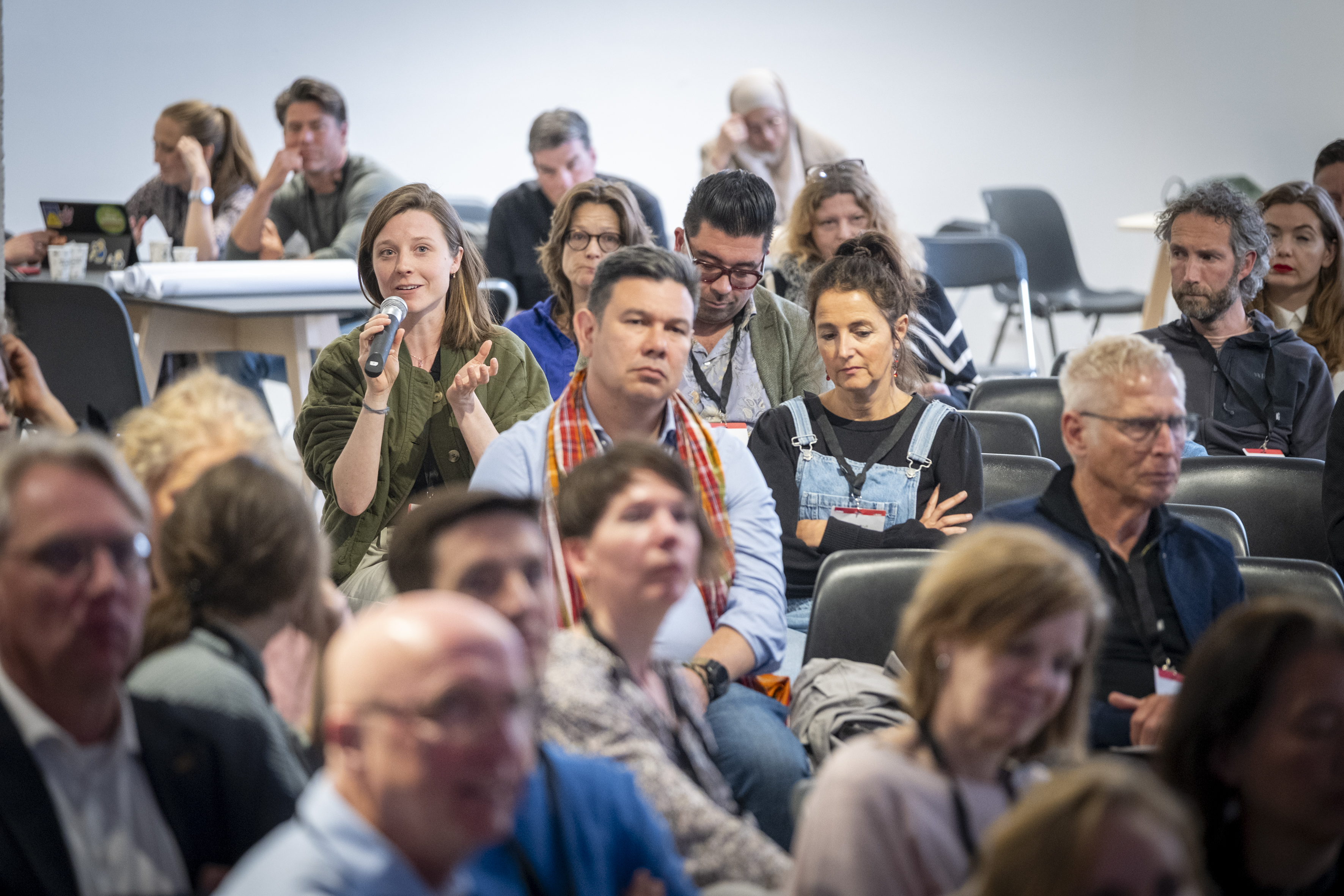Above all, it's about together, together, working together
As Rotterdam University of Applied Sciences, we work on four societal tasks. In addition to 'Sustainable Delta', 'Future-proof Economy' and 'Vital Community', there is also the 'Smart & Social City' theme. This Day of the Future Makers: Smart & Social Fest 2025 was all about the latter. We used the day to share with the four hundred or so visitors how we can build a smart and social city together. It is all about “together, together, working together,” as Hanneke Reuling (member of the RUAS Executive Board) put it in her opening speech.
“We can be gloomy about all the threats out there today,” she said. “But we at Rotterdam University of Applied Sciences we are not into that. It's not without reason that we call our students Future Makers and see them as the ones who can help move this transition forward. It is up to us to equip our students to do so. The same goes for our researchers. They are not here to talk lightly about societal problems, but to tackle them. Together.”
She concluded her opening speech with two wishes for the visitors: that they be inspired and that they become more aware of the opportunities that this era of digitalisation brings as well. “I also hope you will spend time networking. Find friends, connect and see what you can learn from each other.”
Please watch the video below for an impression of the Day of the Future Makers!
Thinking for ourselves about our public values
How does democracy survive after the power grab by big tech companies and the confrontation with America under Trump? Marietje Schaake (internet and privacy expert and author of 'The Tech Coup') answered this question in her keynote speech. She made an impassioned plea to curb the power of US tech companies by developing European counterparts. As an economic counterbalance, but also to strengthen European security and to think for ourselves about our public values.
Schaake also took questions from the audience. For example: should we use less technology in education? Blindly relying on AI which is what students do is a problem,'' Schaake replied. Not only because generative AI sometimes produces nonsense, but also because students' abilities are not properly tested. ‘Brainrot' is not the word of the year 2024 for no reason. Students already get stressed when they have to read a book. I learned how to read at school. But they now ask AI: what's in the book? Then they embellish it and hand that in. I think we should all be much more critical about the risks of technology. So less technology in education? Good idea!

Marietje Schaake: 'Less technology in education? Good idea.' Photo: Levien Willemse
Treated as a consumer rather than a citizen
Paul Rutten, professor at Rotterdam University of Applied Sciences, presented the research publication 'Digital Society and the Quality of Urban Space', which he conducted in collaboration with Amsterdam University of Applied Sciences. It shows that digital platforms (often owned by big tech companies) treat citizens primarily as consumers, not as citizens. An engaged citizen feels a sense of ownership of his or her city, participates in policy making, cares about his or her neighbourhood, and contributes to the common good. A consumer, on the other hand, seeks convenience, speed and personal service.
The result is less social cohesion, more anonymous encounters, a weakened democratic culture and growing inequality. The city is becoming a 'sum of services', with residents increasingly living next to each other rather than with each other. “The city is more than a marketplace,” said Rutten. “It is a community. Together you make a city worth living in”.

Rotterdam University of Applied Sciences professor Paul Rutten. Photo: Levien Willemse
Farewell to a figurehead
Paul Rutten took to the podium for the last time as professor during the Day of the Future Makers: he is retiring thirteen years after he started working here. Hanneke Reuling thanked him warmly, “When you become a professor, you present an inaugural lecture, and we say: the professors are the figureheads of our research and the ambassadors of Rotterdam University of Applied Sciences as a knowledge institution. “You have more than lived up to the role of figurehead. We are proud that of the contributions you have made here.” The somewhat overwhelmed Rutte called his time at RUAS a 'wonderful time' and praised the opportunities RUAS offers its staff to excel.
People over 65 spread much more disinformation
Back to the Day of the Future Makers. The final keynote of the day was given by Rudy van Belkom, director of The Netherlands Study Centre for Technology Trends. His talk was entitled 'A hopeful future with AI', and he is hopeful himself.
“I see some problems, but I am also hopeful, and I will try to explain why you can be hopeful too”. He gave examples of how young people are more critical of AI than people think. The question he posed was: should we make students media-savvy, or should they make us media-savvy? “And don't forget that people over 65 spread much more disinformation on social media than young people.”
After Rudy's talk, someone from the audience asked: what should we do with ChatGPT in education? Rudy: “I once wrote an essay, the essence of which was: that ChatGPT will not break education, it shows where the cracks are. It shows what was already broken. It's just a chatbot. And if it can do homework, we need to think more deeply about that homework. Why not let the students analyse the results of the chatbot?''

Rudy van Belkom: 'Should we make students media savvy or they us?' Photo: Levien Willemse
Talking about these topics every day
The closing word of the day came from Heleen Elferink (leader of the social task Smart & Social City at Rotterdam University of Applied Sciences). “I like the fact that as the day went on it was more about the city and its surroundings. And Rudy's story, which strongly suggest that we have more hope, ties in well with this. In the break-out sessions we had good meetings. We are planning another edition of the Smart & Social Fest for next year, but let's not talk about these issues just once a year. Let's do it every day!”

Photo: Levien Willemse
About the Day of the Future Makers
The Day of the Future Makers is an initiative of Rotterdam University of Applied Sciences and is the result of collaboration between the research centres, centres of expertise and educational institutes of Rotterdam University of Applied Sciences and various partners in practice. The day aims to make knowledge about the current challenges of transition accessible to a wide audience and to build a future worth living together.
On Thursday 17 April 2025, the Future Makers: Smart & Social Fest was dedicated to the Smart & Social City transition challenge. The day was organised in cooperation with the City of Rotterdam and the Digital Inclusion Network.
As Future Makers, students, lecturers and researchers at Rotterdam University of Applied Sciences work together with professional practice to develop directly applicable solutions to societal problems. Are you curious about insights from our practice-based research and education? Please continue reading here: Smart & Social City - Rotterdam University of Applied Sciences.
